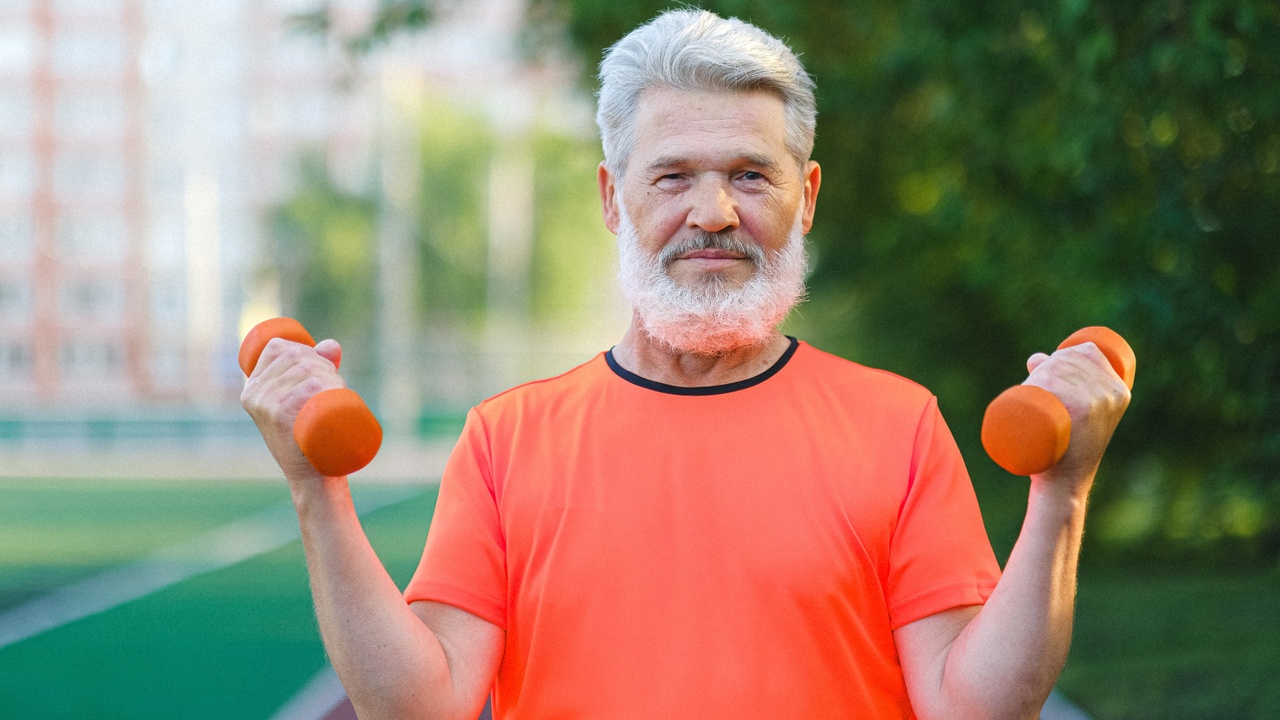Spooky Food for Halloween

Spooky Food for Halloween
By Dr. Sean M. Wells, DPT, PT, OCS, CNPT, ATC/L, CSCS, NSCA-CPT, Cert-DN
As we approach Halloween and the trick-or-treaters hit the street, we as physical therapists (PTs) and scientists need to be aware of a common food additive that can cause cancer. I know you're probably thinking this is another article that's bashing processed foods, but you might be surprised to learn that this food additive is in a lot of our food products, not just candy. Today the Center for Science in Public Interest (CSPI), along with a list of food and children watchdog groups, filed a petition to the Food and Drug Administration (FDA) to ban Red. 3.
This particular food dye, known for its unique red color, is used extensively in candies that are distributed on Halloween. Children consume a vast majority of this Halloween candy, which puts them at risk for cancer. Specifically, it has been known since the 1960s that Red 3 can cause cancer, particularly of the thyroid gland, in ...
Nutrition Crash Course for PTs
Recently I presented at the Florida Physical Therapy Conference at Disney World in Orlando, FL. My discussion was focused on Nutrition Recommendations for PTs. Needless to say the response was overwhelmingly positive! Here's a picture of the 190 chairs in the room before my presentation:

About 5 minutes into my discussion the event staff had to bring in more chairs as there was standing room only and people spilled out the door. The engagement of the PTs and PTAs in the room was amazing, and the feedback after the discussion was extremely positive and supportive. Overall, it is very clear that physical therapists and physical therapy assistants are hungry for more knowledge on nutrition for rehabilitation and PT outcomes.
As such, we are excited to announce a new course addition to our already fabulous line-up of nutrition courses for physical therapists and rehab professional: The Nutrition Crash Course for PTs. We understand some PTs may not want our full CNPT, 3 Course program, ...
Top 3 Diets to Reduce Processed Foods In Patients' Diets

Top 3 Diets to Reduce Processed Foods In Patients' Diets
By Dr. Sean M. Wells, DPT, PT, OCS, CNPT, ATC/L, CSCS, NSCA-CPT, Cert-DN
Recently there has been a lot of press regarding the negative effects of processed foods. From early cognitive decline to the chances of catching COVID-19 more easily, ultra-processed foods definitely have a negative impact on our health: both in the medium and long-term. Despite knowing this, how do we as physical therapists educate our patients on eliminating processed foods?
One of the best ways of doing this is to recommend a specific dietary pattern. A dietary pattern is a way for patients to follow a set of guidelines on what and how much to eat, as well as how to prepare their food. Dietary patterns that promote the least amount of processed foods include:
- Whole food plant-based diet. This dietary pattern is rich in whole foods, like fresh vegetables, fresh fruits, whole grains, and limited meat consumption. The diet is rich in oxidants and po...
Nutritional Sweeteners Affect the Gut Biome

Nutritional Sweeteners Affect the Gut Biome
By Dr. Sean M. Wells, DPT, PT, OCS, CNPT, ATC/L, CSCS, NSCA-CPT, Cert-DN
Artificial sweeteners: good, bad, or simply not understood? For years they were touted to be the pinnacle replacement of the calorie-rich and nutrient poor table sugar. Things seemed too sweet to be true, when some artificial sweeteners, often called non-nutritional sweeteners, were linked with cancer. Fortunately science and common sense prevailed showing no risk of cancer to humans; however, researchers have been tracking some intriguing findings of what artificial sweeteners may do to the gut.
A recent study published in the journal Cell showed that non nutritional sweeteners, like saccharin and sucralose, alter the gut microbiome. We have known for years that there may be some interaction with the gut microbiome, we're just not sure to what extent. With this current publication, clinicians can have a better understanding of how much and which sweeteners affect th...
Geriatric PTs: Prevent Frailty with Diet

Geriatric PTs: Prevent Frailty with Diet
By Dr. Sean M. Wells, DPT, PT, OCS, CNPT, ATC/L, CSCS, NSCA-CPT, Cert-DN
Most physical therapists (PTs) that work with older adults know the importance of preventing their clients from reaching frailty. From falls, femur fractures, to loss of function, frailty can mean a significant change in the quality of life but also potentially earlier death. Doctors of Physical Therapy (DPT) offer older clients an array of treatments from strength exercises, therapeutic activities, balance programs, and functional exercise to mitigate the effects of frailty. But what if we could do more to help our older patients?
New research out of Harvard, and published in the Journal of Gerontology, demonstrates that diet plays a key role in the development of not only frailty but also depression in older adults. The Framingham Heart Study Offspring cohort provided the data used in the study, which include 1,701 non-frail individuals who provided information on the...
Gut Biome Linked with Alzheimer's: What do PTs Need to Know?

By Dr. Sean M. Wells, DPT, PT, OCS, ATC/L, CNPT, CSCS, Cert-DN
Alzheimer's Disease
Physical therapists (PTs) play a crucial role in helping patients and caregivers in the management of Alzheimer's disease (AD). Alzheimer's disease is a chronic neurodegenerative disease that slowly destroys a person's memory, personality, and physical functioning. Currently there is no none cure, so often PTs are left with help patients try to maintain as much physical and cognitive functioning as they can. The costs associated with managing patients with AD are projected to be over $2 Trillion dollars by 2030 -- yes, trillions!
Promising News
While there's much doom and gloom there is also hope: diet and the gut biome. A major, and first of its kind, study out of Edith Cowan University has established a genetic link between AD and several gut-related disorders. In the Nature Communications Biology Paper, the authors analysed large sets of genetic data from AD and several gut-disorder studies – each...
Regenerating Nerve Damage with Intermittent Fasting

By Dr. Sean M. Wells, DPT, PT, OCS, CNPT, ATC/L, CSCS, NSCA-CPT, Cert-DN
Peripheral nerve injuries are coming conditions that doctors of physical therapy (PTs) treat. Some common peripheral nerve injuries include:
- Sciatic nerve damage,
- Saturday Night Palsy,
- Drop foot,
- Carpal tunnel, and
- Cervical radiculopathy.
Typical physical therapy treatments include nerve mobilizations, electrical stimulation, dry needling, and therapeutic exercise.
What if we as PTs could include diet to help accelerate the healing and restore function sooner?
A recent Nature publication examines the use of intermittent fasting specific for sciatic nerve injury in mice. Intermittent fasting is a unique dietary intervention that focuses on a period of fasting with a period of eating as much food as you would like. The researchers took the mice and induced physical trauma to the sciatic nerve. Half of the mice underwent intermittent fasting (by eating as much as they liked followed by not ea...
Best Nutrition Guide for PTs

By Dr. Sean M. Wells, DPT, PT, OCS, CNPT, ATC/L, CSCS, NSCA-CPT, Cert-DN
Physical therapists (PTs) are direct care providers who help people across many settings and with various pathologies and functional losses. From cardiac issues, metabolic dysfunction, cancer, neurological deficits, and musculoskeletal disorders, PTs can help a variety of patients get stronger, move with more confidence, and feel better. One key tool that can help with PT's treatments is nutrition.
Nutrition is in the scope of practice of Doctors of PT (DPTs), according to the American Physical Therapy Association (APTA). Nutrition is linked with inflammation, recovery, pain, psychological well being, and quality of life. Plus, most of our clients are taking supplements or simply want to get better, faster with any approach possible -- as such, PTs need more quality dietary info.
One of the best evidenced-based resources for nutrition is Examine.com. Examine offers copious research, great summaries, and even pl...
Healthy Living Medicine and PT

By Dr. Sean M. Wells, DPT, PT, OCS, CNPT, ATC/L, CSCS, NSCA-CPT, Cert-DN
I was excited to see a recent publication in our APTA’s PTJ titled Precision Medicine and Physical Therapy: A Health Living Medicine Approach for the Next Century. I have been following the primary author, Rich Severin, on Twitter for some time now and enjoy his perspectives. Overall the article dives into much of what my team and I practice – I earnestly hope it is something other PTs (physical therapists) begin to practice too. In this light, I’d like to discuss some of the important topics in this article.
First, it goes without saying that general health has an impact on physical therapy, functioning, and quality of life. Chronic health conditions like heart disease, high blood pressure, and diabetes makes healing difficult and are linked with other disease states that cause physical damage to other tissues (e.g. high blood pressure damages the kidneys). Functionally clients struggle with these diseases bec...
Changing Diet Extends Lifespan

Changing Diet Extends Lifespan
By Dr. Sean M. Wells, DPT, PT, OCS, CNPT, ATC/L, CSCS, NSCA-CPT, Cert-DN
One of the biggest topics of last year in the dietary world was intermittent fasting, most commonly seen as time restricted feeding by many. A lot of research has poured into this area with a big focus on longevity. I myself have published a couple trials using intermittent fasting, so I'm very familiar with the process and some of the mechanisms. But what if the explanations would focus on what our clients eat instead of how much or when? This is much of what Dr Katz has been analyzing with the True Health Initiative. Let's take a look at some of the most recent data and see what happens to people's lifespan when they change their diet.
It's well understood that the Western diet, particularly a diet high in saturated fat, salt, and sugar, has been shown to promote disease and reduce lifespan. Copious studies and systematic reviews have shown that reducing highly processed food an...


